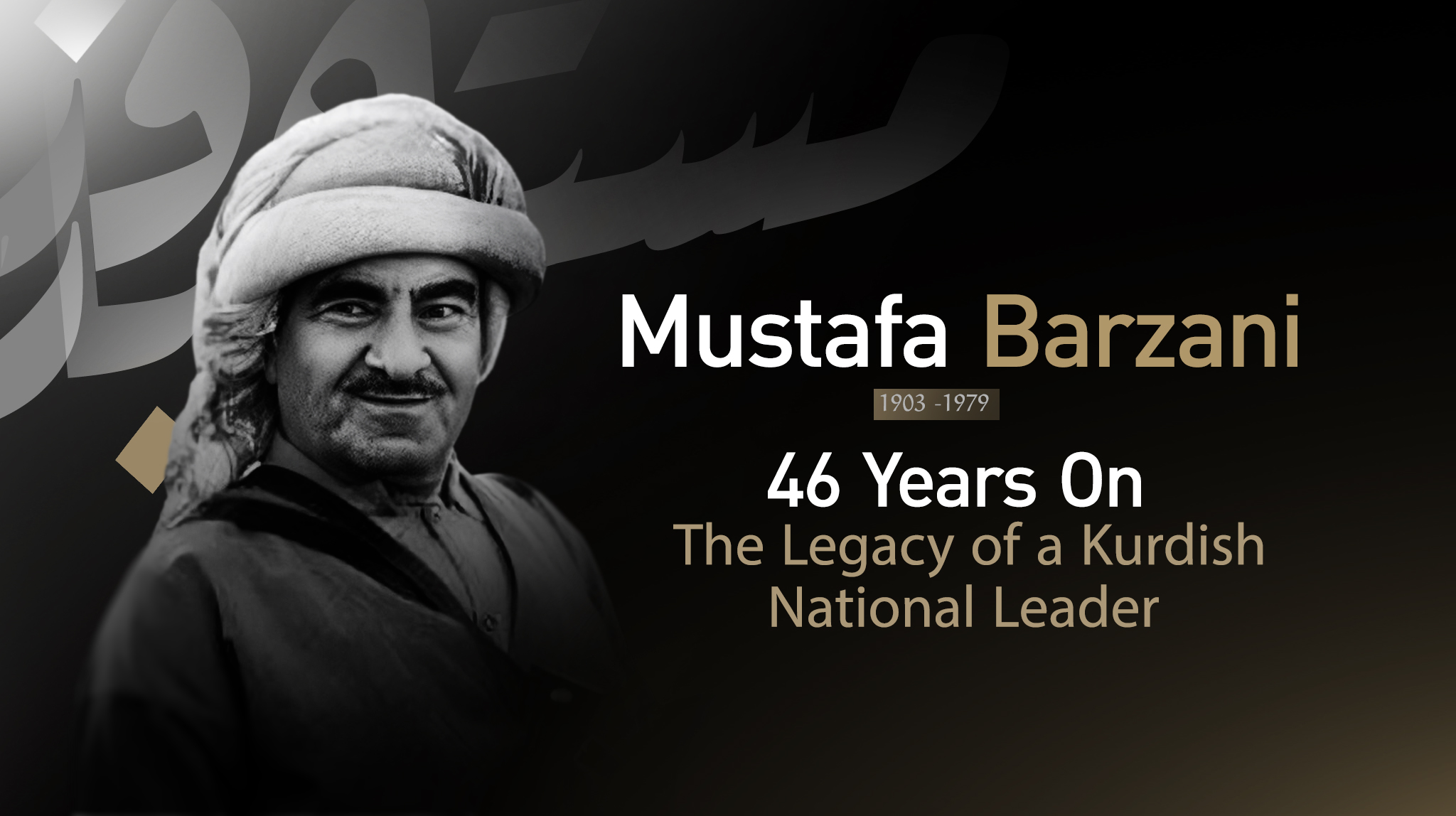46 Years On: The Legacy of a Kurdish National Leader
The late Mullah Mustafa Barzani's contributions to the Kurdish national cause remain deeply embedded in Kurdistan's history, and his ideals continue to inspire the Kurdish struggle for freedom and justice.

ERBIL (Kurdistan24) – Saturday, March 1, 2025, marks the 46th anniversary of the passing of Mullah Mustafa Barzani, the legendary Kurdish leader who dedicated more than half a century to the Kurdish liberation movement.
His struggle for Kurdish rights, resistance against oppression, and determination to secure justice for his people left an enduring legacy that continues to inspire generations.
Mullah Mustafa Barzani was born on March 14, 1903, in the village of Barzan, a place that would become synonymous with Kurdish resistance. From his youth, nationalist sentiment and the desire for Kurdish self-determination were deeply ingrained in his character.
His first major engagement in Kurdish resistance occurred at the age of sixteen when he joined Sheikh Mahmoud Hafid’s revolution in Sulaimani. In 1920, Barzani was sent to Northern Kurdistan to coordinate efforts with Sheikh Saeed Piran’s revolution, marking the beginning of his extensive political and military journey.
Throughout the 1930s, Barzani led the defense of Kurdish territories against British occupation forces, particularly in the Mergasor and Sherwan regions, earning widespread recognition for his military competence. His leadership of the Barzani revolutions in 1943 and 1945 solidified his status as a key figure in Kurdish history.
On January 22, 1946, Barzani played a pivotal role in the establishment of the Democratic Republic of Kurdistan in Mahabad, the first modern Kurdish state. He was appointed by President Qazi Muhammad as the commander of the republic’s army and was granted the rank of General.
However, following the fall of the Mahabad Republic in 1947, Barzani and over 500 Kurdish fighters undertook a historic and arduous journey to the Soviet Union, refusing to surrender to Iran’s authorities. They successfully crossed into Soviet territory after resisting multiple attacks by the armies of Iraq, Iran, and Turkey.
With the overthrow of Iraq’s monarchy in 1958, Barzani and his fighters returned to Iraq, receiving a hero’s welcome in Erbil. However, tensions with Baghdad persisted, and on September 11, 1961, Barzani launched the September Revolution, the longest and most influential Kurdish armed resistance against Iraqi rule.
This 14-year struggle resulted in the historic March 11, 1970, autonomy agreement with the Iraqi government, granting Kurdistan its first formal recognition of self-rule.
Despite this victory, the Kurdish struggle faced a major setback in 1975 following the Algiers Agreement between Iraq and Iran. Barzani, undeterred by betrayal and shifting political landscapes, remained committed to his people’s cause and laid the foundation for the continuation of Kurdish resistance.
On March 1, 1979, Mullah Mustafa Barzani passed away at the age of 76 in Georgetown Hospital in Washington, D.C. His body was initially laid to rest in Eastern Kurdistan, where thousands gathered to pay their final respects.
Fourteen years later, on October 6, 1993, his remains, along with those of his son Idris Barzani, were returned to the Kurdistan Region and reburied in their birthplace of Barzan.
Mullah Mustafa Barzani’s legacy is one of unwavering resistance, visionary leadership, and an unbreakable commitment to Kurdish self-determination.
His contributions to the Kurdish national cause remain deeply embedded in the history of Kurdistan, and his ideals continue to inspire the Kurdish struggle for freedom and justice.